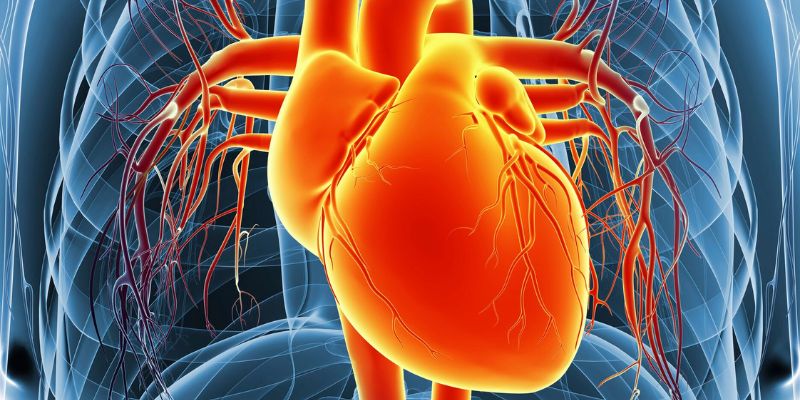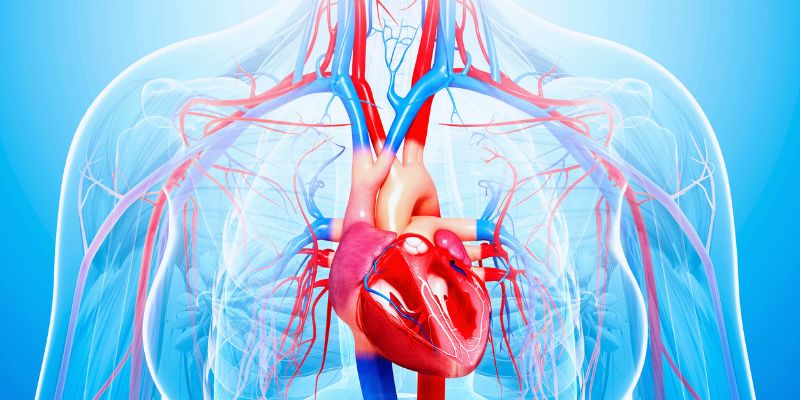Cardiometabolic health describes your heart's general state, blood vessels, and metabolism. It covers important elements, including weight, blood pressure, cholesterol, and blood sugar. Good cardiometabolic condition is essential since it lowers the risk of stroke, diabetes, and heart disease. Severe consequences from poor cardiometabolic health include renal disease and heart attacks. Before they had health problems, many people had no idea how important these elements were.
Therefore, it is vital to understand your cardiometabolic health and learn how to control it. Cardiometabolic health will improve by making better decisions, including eating better, being active, and controlling stress. This guide will explore the key elements of cardiometabolic health and offer doable advice to assist you in preserving or enhancing it.

What is Cardiometabolic Health?
A person's cardiometabolic health is their whole risk of developing significant diseases, including type 2 diabetes, heart disease, and stroke. It affects your heart's condition and how effectively your metabolism runs. The phrase covers several crucial elements: weight, blood pressure, blood sugar levels, and cholesterol levels. Each element significantly affects your general health and is important in deciding your long-term risk of chronic illness development.
For instance, excessive blood pressure can harm your arteries, therefore raising your heart disease risk. Likewise, although poor cholesterol levels help to create plaque in your arteries, hence increasing the risk of stroke or heart attacks, high blood sugar levels can cause type 2 diabetes. Maintaining good cardiometabolic health and avoiding major health issues depend on the components' management.
How to Improve Your Cardiometabolic Health?
Improving your cardiometabolic health needs simple lifestyle adjustments that minimize the chance of major diseases.
- Eat a Healthy Diet: One may make a lot of difference with a balanced meal. Give fruits, vegetables, whole grains, and lean proteins top attention. Cut foods heavy in processed carbohydrates, sugars, and saturated fats. A diet high in fiber and good fats—such as those found in nuts and fish, can help decrease cholesterol and raise blood sugar levels.
- Exercise Regularly: Physical activity is essential for maintaining a healthy weight and enhancing cardiac health. Try to get in at least 150 minutes of moderate-intensity exercise every week. Walking, swimming, and cycling can lower blood pressure, drop blood sugar levels, and raise cholesterol.
- Maintain a Healthy Weight: Losing extra weight could improve your general health. Even a minor weight loss of 5–10% of your body weight will diminish your risk of type 2 diabetes, and your blood pressure and cholesterol will also drop. Losing and keeping a good weight depends mainly on combining exercise with a good diet.
- Manage Stress: Chronic stress may compromise your health by affecting blood pressure and blood sugar levels. Try yoga, meditation, and deep breathing, among stress-reducing activities, to raise your cardiometabolic health.

Key Factors in Cardiometabolic Health
Examining its components can help one grasp cardiometabolic wellness. Every element shapes your general risk for major medical problems.
- Blood Pressure: High blood pressure, sometimes called hypertension, strains your heart and blood arteries. It raises the chance of stroke, renal difficulties, and heart disease. Good cardiometabolic health depends on blood pressure falling within a normal range.
- Blood Sugar: Blood sugar levels affect how well your body uses glucose for energy. High blood sugar, often present in diabetes, can cause major problems, including renal failure, nerve damage, and heart disease. Maintaining health requires steady blood sugar levels.
- Cholesterol: One fatty material that could build up in your arteries is cholesterol. High cholesterol can cause blocked arteries, therefore raising the risk of heart attacks and strokes. Maintaining good cholesterol levels is crucial for preserving the blood arteries and heart.
- Weight: Overweight or obese people run more chances of having disorders, including type 2 diabetes, high blood pressure, and heart disease. Diet and exercise help one maintain a good weight, greatly enhancing cardiometabolic conditions.
- Physical Activity: Regular exercise helps metabolism, heart health, blood pressure, blood sugar, and cholesterol control. It also helps control weight and lowers the risk of diabetes and heart disease.
The Benefits of Improving Cardiometabolic Health
Improving your cardiometabolic condition has many advantages that greatly increase your quality of life. First, it raises your energy level so you may stay up and active throughout the day. Maintaining a good heart, blood vessels, and metabolism will help you feel better by controlling hormones, reducing stress, and fostering general mental well-being. It also improves your mood and simplifies and increases your enjoyment of daily chores.
By carefully managing important factors, including blood pressure, blood sugar, cholesterol, and weight, you could greatly reduce your risk of major chronic diseases, including diabetes, heart disease, and stroke. Moreover, a better lifestyle helps you to sleep better, so you will feel rested and rejuvenated. It guarantees that you lead a longer, better, and more fulfilled life, which can lead to a longer lifetime.
The Impact of Poor Cardiometabolic Health
Key factors, including blood pressure, blood sugar, cholesterol, and weight, are poorly regulated and can significantly increase the risk of developing chronic illnesses. High blood pressure, for example, can compromise your blood arteries, which lowers their effectiveness and strains your heart very heavily. Over time, this can result in other circulatory problems and heart disease. Similarly, too high blood sugar levels—often associated with diabetes—can damage vital organs, including kidneys and neurons.
It can cause kidney failure, neurological disorders, and maybe blindness if untreated. Higher cholesterol can promote plaque development in your arteries, therefore blocking blood flow and increasing your risk of heart attacks or strokes. Moreover, obesity or overweight raises the risk of developing diseases, including type 2 diabetes and high blood pressure. The strategies for avoiding these effects include early detection and suitable treatment of cardiometabolic health factors.
Conclusion:
Maintaining ideal cardiometabolic health will help prevent chronic diseases, including stroke, heart disease, and diabetes. By regulating weight, blood sugar, cholesterol, and blood pressure, you lower your chance of significant health problems. Cardiometabolic health can improve with simple lifestyle adjustments, including a balanced diet, consistent exercise, and stress management. Preventing long-term consequences mostly depends on early identification and ongoing treatment. Taking control of your health now can help you guarantee a better future and lower your risk of life-threatening diseases.








